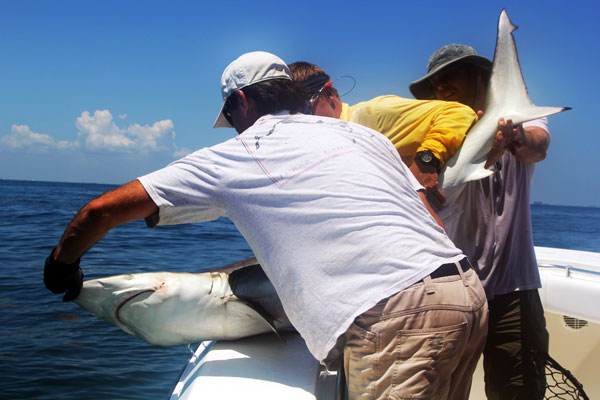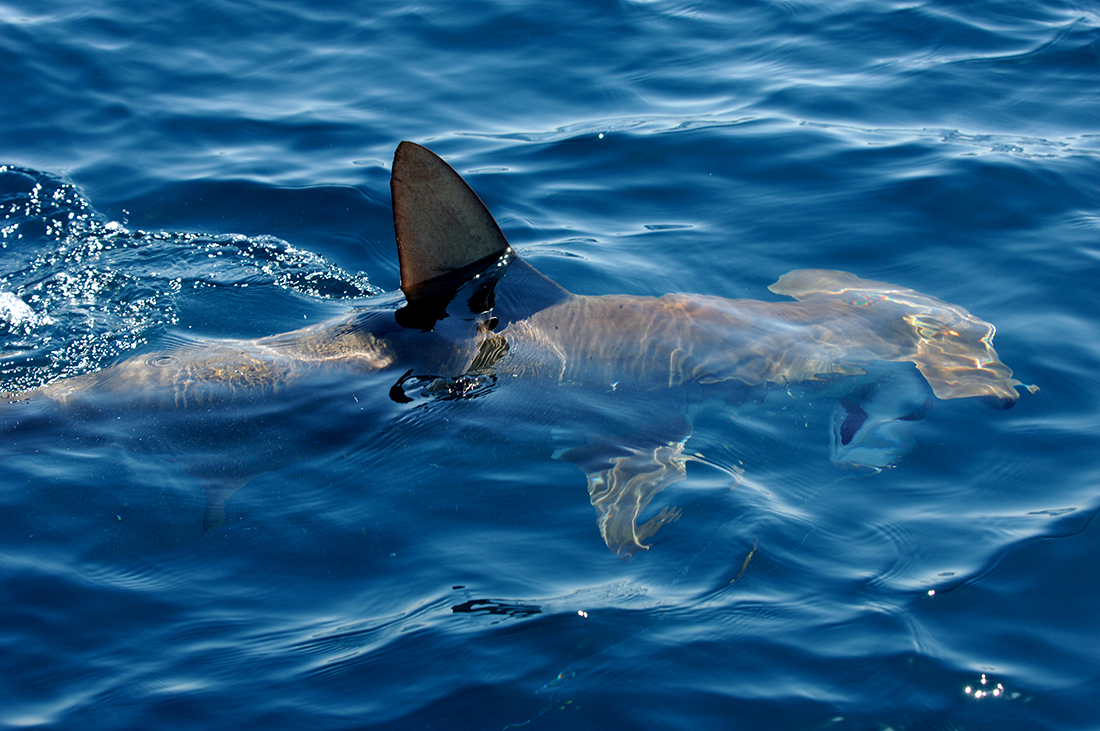Tracking Apex Predators in the Gulf of Mexico
Knowledge of the movement patterns and habitat use of large predators is important in marine ecosystems given their role as top-level predators and the importance of ecosystem-based fisheries management. We are examining the horizontal and vertical movement patterns of large predatory sharks/fishes and the role of oceanographic and environmental parameters on their distribution. This work utilizes electronic tagging technology to provide detailed information on the habitat use of sharks/fishes capable of moving long distances and often difficult to study. Collaborations with regional colleagues throughout the Gulf of Mexico make this work possible given the difficulty and expenses associated with this research in offshore waters.

